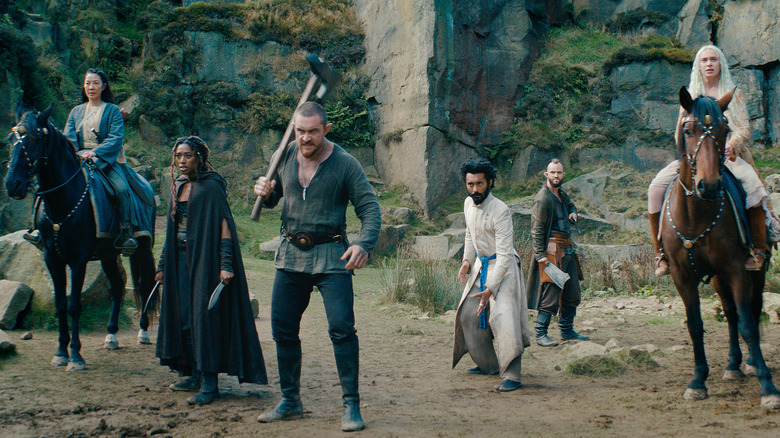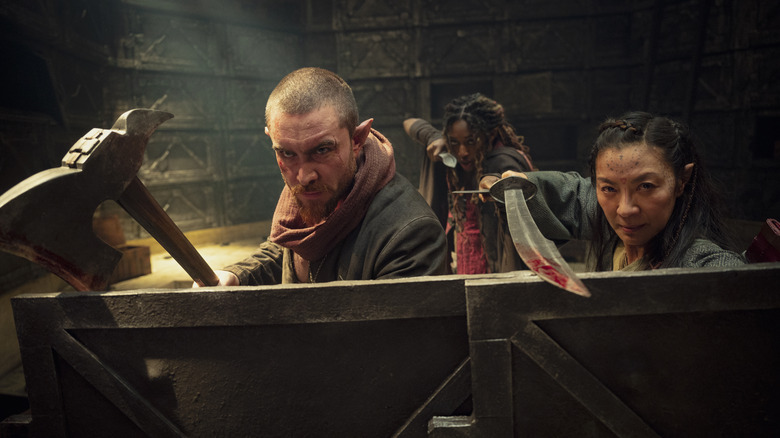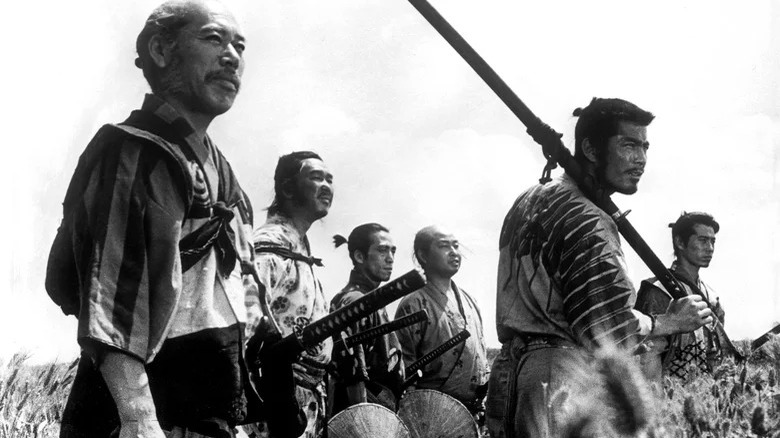The Witcher: Blood Origin Took Inspiration From Classic Cinema [Exclusive]
The upcoming Netflix prequel miniseries "The Witcher: Blood Origin" operates a little differently than the show that spawned it. For starters, it takes place long before the adventures of Geralt and the rest of the characters from "The Witcher." Not only that, but it takes place in an entirely Elven world, before the cataclysmic event that threw the realms together in chaos, and it's more of an ensemble piece than a story about just one main hero. Instead of Geralt (played by Henry Cavill for the first three seasons of "The Witcher" and Liam Hemsworth in the not-yet-filmed season 4), "Blood Origin" follows a team of heroes as they find one another on their quest to stop a terrible evil.
I had the chance to speak via Zoom with the series' showrunner, Declan de Barra, about his inspirations for the seven heroes who team up to take on a threat to all existence. While he definitely drew from the same series of novels by Polish author Andrzej Sapkowski that "The Witcher" is based on, he also had some more classic film inspirations that helped make "Blood Origin" feel truly epic.
A time-honored storytelling tradition
When asked what drove de Barra to create a story where many characters would have to come together, he referenced both the series' source material and cinema history:
"Going back to Sapkowski's books, it is all one way or the other [about] putting together a team and taking people who are very far apart and very different, and bringing them together over the course of his books. And that's a device as old as time, going back to the Greeks and way before to the first time we've sat around in the cave and first started telling stories. And just the idea of the 'Seven Samurai' or '13 Assassins' in a fantasy world, it was just a perfect device while still honoring the Sapkowski way."
"The Witcher: Blood Origin" follows Éile (Sophia Brown), a fairly well-renowned bard who spreads the news of the world via her songs. She teams up with warrior Fjall (Laurence O'Fuarain) and the last descendent of an ancient sword tribe, Scian (Michelle Yeoh), along with a small handful of other unusual heroes. In the end, there are seven characters who team up to try to stop the Conjunction of the Spheres, mirroring that "Seven Samurai" reference pretty explicitly.
Reverence for a classic
It's almost impossible to fully explain the impact of Akira Kurosawa's "Seven Samurai" on storytelling, and especially on cinema history. The 1954 film is the story of seven men who band together to defend a village that cannot afford to hire professional mercenaries, like the samurai. Instead, the village is defended by the seven, who come from a variety of backgrounds and all have their own reasons for taking on such a monumental task. Dozens of movies have drawn from its formula, ranging from "The Magnificent Seven" to "A Bug's Life."
Much like the seven men who join up one by one to defend the village, the seven warriors of "The Witcher: Blood Origin" find one another and team up to defend the entire world. Stories of teams of misfits facing off against incredible odds have been around as long as stories have been told, but "The Witcher: Blood Origin" aims to use the trope to tell something new.
"The Witcher: Blood Origin" premieres on Netflix on December 25, 2022.


